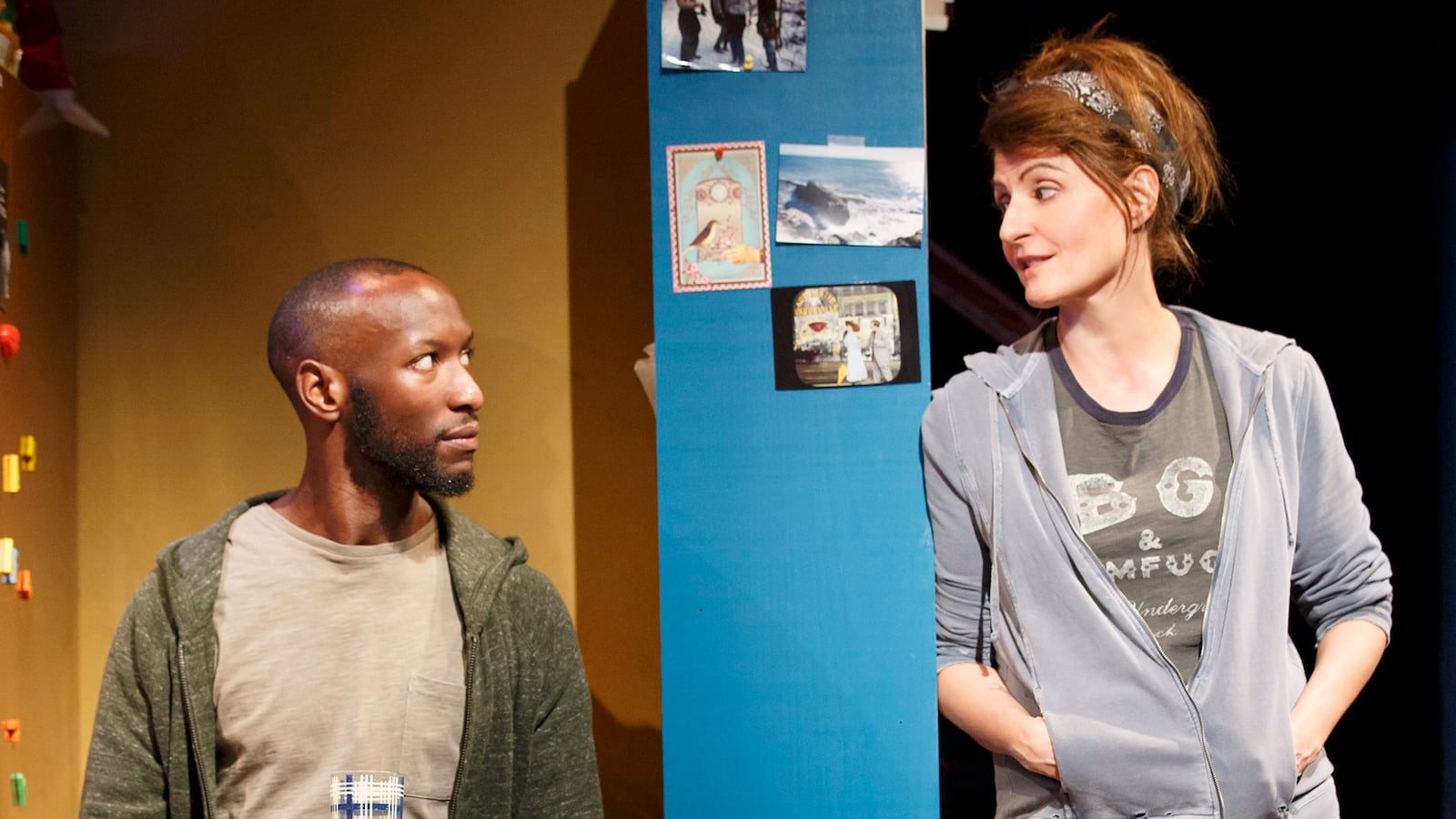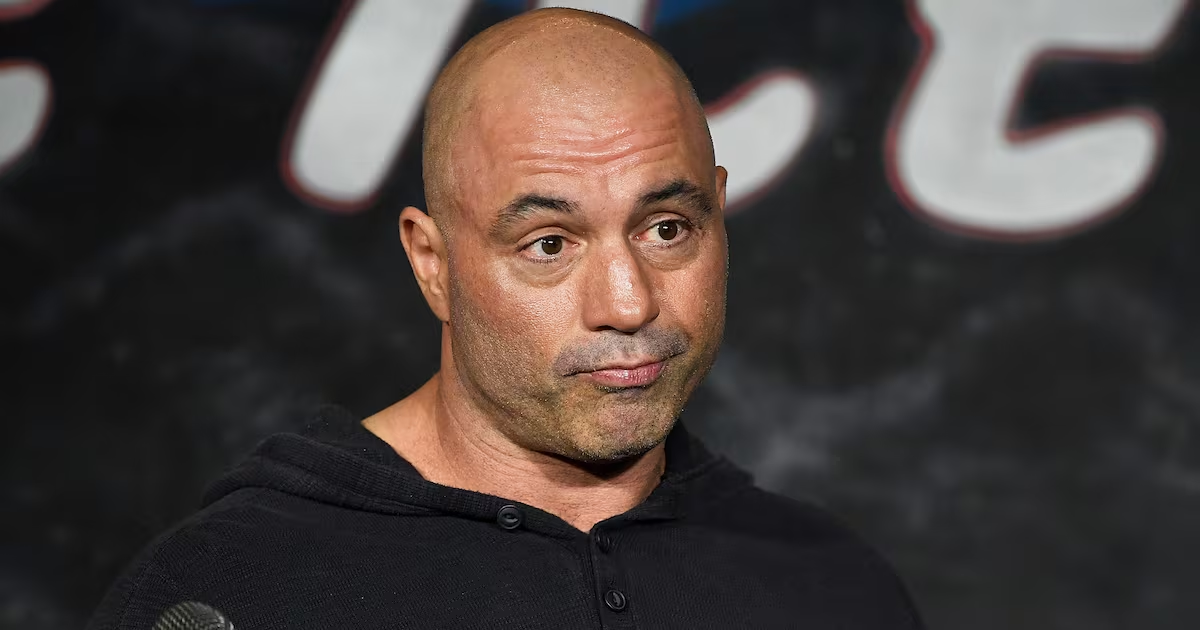The three terrific actors who ask questions of advice columnist Dear Sugar in the Public Theater’s new play Tiny Beautiful Things are a Greek chorus of pain.
They feel trapped in marriages, abused by parents, and unable to forgive. As they move slowly around the stage that is set up like anybody or everybody’s slightly messy apartment, they wonder about big and small issues, from when to leave a marriage to how to tell a new boyfriend about a past sexual assault.
Or as one of them asks several times over, “‘What the fuck, What the fuck, What the fuck?’ I’m asking this question as it applies to everything, every day.”
Adapted from Cheryl Strayed’s book of the same name, the play is a collection of stories that are sometimes moving, often insightful, and occasionally funny.
In discussing infidelity, Sugar explains that at some point in every monogamous relationship, we love X but want to sleep with Z.
“Z is like a motorcycle with no one on it. Dazzling. Going nowhere,” she explains.

An advice column isn’t a typical source of material for a new play. But then Cheryl Strayed isn’t a typical advice columnist. For two years, she offered her wisdom in an online column under the name Sugar. Then in 2012 her book Wild came out and hit the top of bestseller lists. Strayed quit her (unpaid) column that year—and revealed that she was Sugar.
Wild was quickly turned into an Oscar-nominated movie starring Reese Witherspoon.
Actress Nia Vardalos (of My Big Fat Greek Wedding) must have figured that what worked for Witherspoon would work for her. So she adapted the book Strayed published of her advice columns into this play in which she stars as the author, aka Sugar.
As portrayed by Vardalos, Sugar spends the play giving her advice wearing hanging-around-the house clothes—pajama bottoms and a hoodie, with her hair pulled back in a cloth headband. The three questioners (the terrific actors Phillip James Brannon, Alfredo Narciso, and Natalie Woolams-Torres) slip in and out of characters in a way that makes the questions feel universal. But all of them want to know more about Sugar.
She promises to tell everything about herself except her name. And her answers are revealing in many ways—she talks about the death of her mother, her abusive grandfather, and how she left her own marriage because of a small voice that kept saying “go.”
Asked about the dumb things she’s done, Sugar says bluntly “Heroin. Meth. The withdrawal method. A blow job by a lake. An idiot punk at a Beastie Boys concert.”
But while it seems like she is self-revelatory, we get frustrated knowing so little about the real character in front of us on stage. At one point while she’s talking, she’s packing food into two children’s lunchboxes. Is she a mom now? Who is the new husband? Without more depth of character, the play starts to feel like someone reading too many fortune cookies.
Sugar never seems to have a moment of hesitation about her answers. Only on her very first column, when she is asked about love by someone who signs the letter “Confused” does Sugar struggle to find the right voice.
“Dear Confused, You certainly must be confused…” she says, before shaking her head and rejecting that approach.
She has a couple more false starts, then finally settles on her style—which is to plunge right in to a personal story. She describes how her own mother died at age 45, and the last word she ever said to Sugar was “love.”

And that sets the style that Sugar will use—answering most questions with a story about herself, the lesson she learned, and the bigger message.
“Be brave. Brave enough to break your own heart,” she tells Confused. “Look, we’re all going to die. Hit the iron bell like it’s dinnertime.”
Strayed’s writing is lyrical and her answers have a rhythmic power. But Vardalos is so smooth in her presentation that the stories she tells about her own past don’t resonate with real pain because they all seem to be glossed over with the brush of Lessons Learned.
Ultimately, the play is saved—and the 80 minutes on stage made worthwhile—by the last question, asked by a grieving father (played by Narciso). His 22-year-old son was killed a few years earlier by a drunk driver who ran a red light. Now his grief is still so raw that all he can do is send Sugar a list.
“I’m a father while not being a father. Most days it feels like my grief is going to kill me, or maybe it already has. I’m a living dead dad,” he says.
As he goes through his list, his anguish is almost overwhelming to watch. It’s an extraordinary performance because it doesn’t feel like a performance at all—the moment is real and wrenching.
His list is a great catharsis, a recognition of the pain that comes with being alive and needing to go on in the face of whatever troubles we have.
One of Vardalos’s collaborators on this adaptation was Thomas Kail, the extraordinary director of Hamilton. He knows how to make emotional endings. If only he had insisted on a bit more narrative arc to the rest of the story, it could have made for a more powerful play.
Tiny Beautiful Things is at the Public Theater, New York, through Dec. 31, 2016. Book tickets here.





